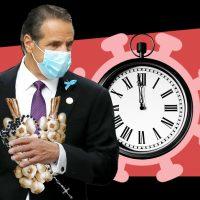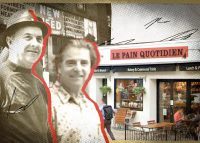Two new lawsuits have been filed against Gov. Andrew Cuomo, alleging that the ongoing ban on indoor dining in New York City is unconstitutional.
The first suit, filed in the Eastern District of New York on behalf of co-plaintiffs Kellogg’s Diner and Toscana, argues that the indoor dining ban violates the equal protection clause and the due process clauses of the 14th Amendment, because “shutting down a business is a significant incursion on the rights to liberty and property.”
“The shutdown of indoor dining in New York City is arbitrary and irrational,” attorneys for the plaintiffs wrote in the complaint.
Read more



The second complaint, a class action suit filed in the Southern District of New York on behalf of the Seaport House, the Greater New York Merchants’ Alliance and a restaurant employee, argues that the regulations go against the First Amendment and due process clause of the Constitution. The suit also names Mayor Bill de Blasio and the city’s Department of Finance as co-defendants.
In both suits, the plaintiffs are seeking for Cuomo’s executive order, which banned indoor dining as of Dec. 14, to be deemed unconstitutional, and are seeking unspecified monetary relief.
Representatives for Cuomo did not respond to a request for comment.
Restaurants in other counties are currently allowed to proceed with indoor dining at a limited capacity, but establishments in the city must contend with a blanket ban. As a result, eateries are closing, unable to support themselves on outdoor dining, delivery and takeout.
The lawsuits allege that these restrictions are not only unfair, but illogical from a scientific standpoint.
When Cuomo shut down indoor dining for a second time in mid-December, the positivity rate in New York City was at just 2.7 percent, less than half that of many counties throughout the state where indoor dining remains open, the lawsuits argue. (The positivity rate in the city has since shot up, hitting nearly 7 percent as of Dec. 28.)
Additionally, indoor dining is responsible for only 1.4 percent of spreads, compared to 74 percent originating from household interactions and gatherings, according to data provided by the city’s health department.
“The numbers do not add up. If the numbers added up, I would back out,” said James Mermigis, an attorney for the Mermigis Law Group, who is representing the Kellogg’s Diner in Williamsburg in one of the lawsuits. “But the numbers did not add up. I think [Cuomo is] reaching for straws.”
Lawyers for the plaintiffs in the class-action suit did not respond to a request for comment.
A similar class action suit was filed against the governor following the first shut down of indoor dining, but indoor dining was permitted to resume shortly after the suit was filed.
Other lawsuits have tried more creative ways to tear down restaurant restrictions. One Brooklyn bar argued against a 10 p.m. curfew by stating that Covid-19 “does not behave as a vampire, infecting others only when the moon is out.”
